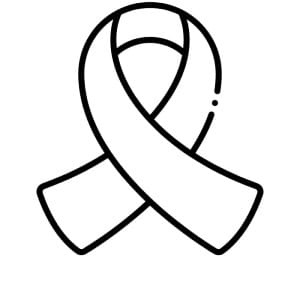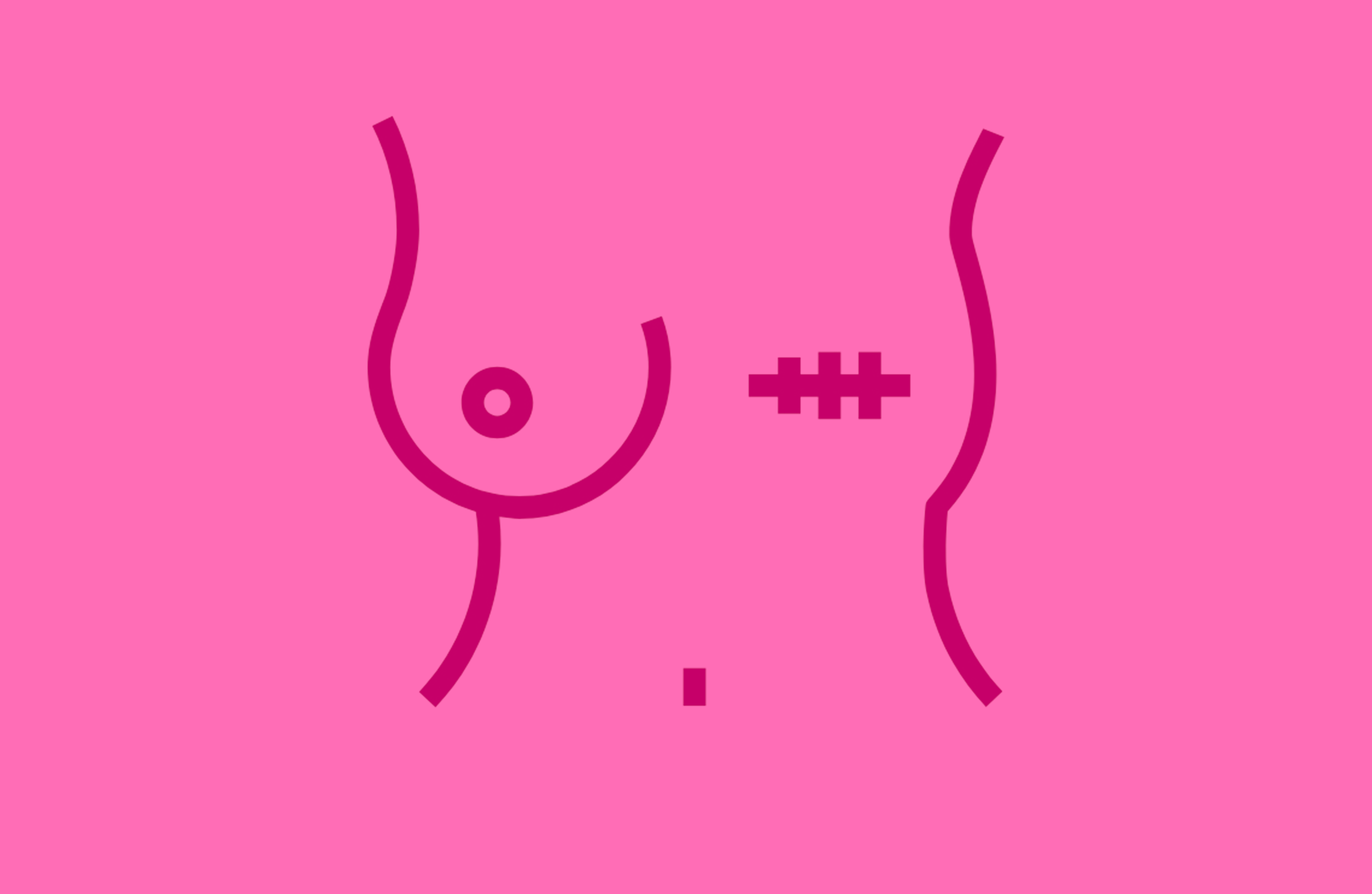“Save the tatas!” we all screamed in unison. It was Pink Night at a high school football game. We were decked out head to toe in pink shirts, Mardi Gras-style pink beads, tutus covered in glitter, and our faces were decorated with small pink ribbon tattoos. Was this an awareness campaign night? Was it a fundraiser? I don’t remember, but it always happened in October, and I always went because it was fun to get dressed up monochromatically and ‘support a good cause’. It was a mainstay in the high school program routine. Breast cancer sounded shitty but it also was this far away thing that I didn’t understand at 16 years old. Everyone loves a good theme, even when they don’t know what it really means.
Fast forward to fourteen years later — when my breasts were amputated off my body at the age of 29 with a diagnosis of stage IV breast cancer. I endured 20 rounds of chemotherapy, 28 rounds of radiation, and have been on hard maintenance drugs ever since (and will be indefinitely) that target potential abnormal cells looking to gather and take over once more. For now, my cancer is getting the memo that my body is a no cancer zone, but it often feels like I am on borrowed time and at the mercy of medical advances and existing treatments. We couldn’t save my tatas; and two years into being breastless, it’s hard not to wonder if saving myself was enough.
We’ve all seen the breast cancer awareness shirts with slogans like: “I am here for the boobs,” “Squeeze a boob, save a life,” and “Save second base.” Nowhere in the vernacular of commercialized breast cancer awareness is the life and soul of the breast cancer patient put front and center. The disease has been hijacked by the hypersexualization of breasts, reducing a life-threatening illness to a series of flirty catchphrases and trivializing the very real suffering it causes. This focus on breasts as objects of desire — rather than integral parts of a person’s body and identity — perpetuates a culture that overlooks the physical and emotional trauma faced by those battling breast cancer. It diminishes the gravity of the diagnosis, turning a fight for survival into a cheeky play on words.
This hypersexualization also alienates many patients who feel that their experiences are not being taken seriously. It glosses over the complex and painful realities of treatment, such as the loss of breasts or changes to breasts following a lumpectomy, the fear of recurrence, and the impact on one’s sense of self. For those who lose their breasts as part of their treatment plan, these slogans can feel like a cruel reminder of what’s been taken from them, reducing their struggle to a punchline and insinuating that they did not do enough mammograms or self checks to prevent breast cancer. This narrow portrayal also neglects the stories of male breast cancer patients, further entrenching the idea that breast cancer is only about female sexuality rather than a serious health issue that can affect anyone.
In the process, the true message of breast cancer awareness — early detection, support, research, and survivorship — gets lost. The focus shifts from saving lives to preserving an idealized image of femininity, leaving those who don't fit this narrative feeling isolated and unseen. We need a shift in how we talk about breast cancer — one that centers on the humanity of those affected rather than on the commodification of their bodies. Awareness should be about more than just saving breasts; it should be about education, advocacy, compassion, and a commitment to supporting those who face this devastating disease.
October is Breast Cancer Awareness Month. As we navigate through this month, it's crucial to redefine breast cancer awareness beyond the slogans and superficial campaigns. We must challenge the narratives that reduce a life-altering illness to a series of catchy phrases, and instead focus on the real, human experiences behind the disease. Let’s prioritize the stories of survival and those we have lost along the way, the importance of early detection, and the need for ongoing research that could save lives.
I urge you to look beyond the pink ribbons and truly engage with the realities of breast cancer — by supporting patients, advocating for comprehensive care in all stages of breast cancer and survivorship, and pushing for a more authentic representation of this disease. Together, we can create a culture of awareness that honors the lives and struggles of those affected, and work towards a future where no one has to lose their life or sense of self to breast cancer.

Madison Rosenbaum Evangelista is a 32-year-old stage IV metastatic breast cancer thriver. You can follow her journey at http://madisonhatescancer.com or on Instagram @captainmadisonx.


